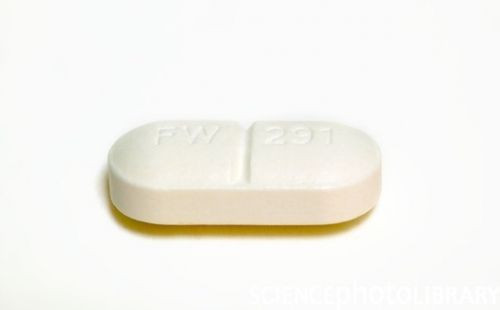Prescription Painkiller Abuse Linked To Erectile Dysfunction In Men

Long-term prescription pain killer use has been linked to an array of harmful health side effects including addiction, mood alteration, and overdose. A study published in Tuesday's edition of the journal Spine has now included erectile dysfunction (ED) to this growing list of health concerns.
According to the Centers for Disease Control and Prevention's Morbidity and Mortality Report, use of prescription opioids such as hydrocodone, oxycodone, and morphine quadrupled from 1999 to 2010. In the Spine study, researchers from the Kaiser Permanent Center for Health Research set out to determine the relationship between prescription opioid use for back pain and prescription use of testosterone replacement or ED medication.
"There is no question that for some patients opioid use is appropriate, but there is also increasing evidence that long-term use can lead to addiction, fatal overdoses, sleep apnea, falls in the elderly, reduced hormone production, and now erectile dysfunction," said lead author Dr. Richard A. Deyo, Professor of Evidence-based Family Medicine at Oregon Health & Science University in a press release.
The study looked at 11,327 men enrolled in the Kaiser Permanente health plan, all of whom had sought help for back pain. Investigators probed the men's pharmacy records six months before and six months after doctor visits, checking for prescriptions opioid or ED medication.
For the basis of their study, Dr. Deyo and his associates delineated prescription pain killer use into five categories:
- "None"- Those who had never been prescribed opioids.
- "Acute"- Those who took opioids three months or less.
- "Episodic"- Those who took opioids over three months.
- "Long-term"- Those who took opioids for at least four months or for more than 30 months with 10 refills.
- "High-dose"- Use equal to 120 mg of morphine.
The results of their analysis revealed that over 19 percent of men who took doses of opioids equivalent to 120 mg of morphine for more than four months were also prescribed some kind of ED medication. Over 12 percent of men who took under 120 mg and seven percent of men who weren't prescribed opioids were also prescribed ED medication. The team did however note that men over the age of 60 were 14 times more likely to suffer from ED as a result of opioid abuse compared to men between the ages of 18 to 29. Once factors for age were adjusted, the team found opioid abuse increased a man's chance of developing ED by 50 percent.
"Men who take opioid pain medications for an extended period of time have the highest risk of ED," explained Dr. Deyo. "This doesn't mean that these medications cause ED, but the association is something patients and clinicians should be aware of when deciding if opioids should be used to treat back pain."
Published by Medicaldaily.com



























